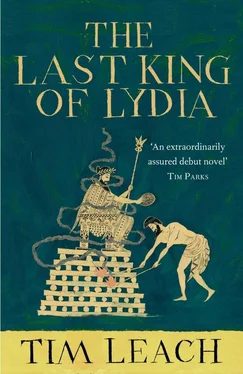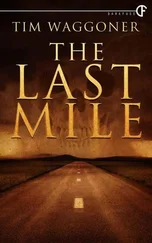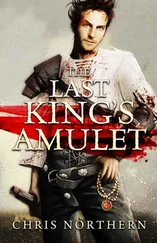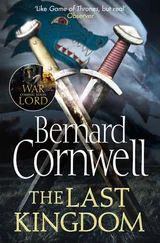Tim Leach - The Last King of Lydia
Здесь есть возможность читать онлайн «Tim Leach - The Last King of Lydia» весь текст электронной книги совершенно бесплатно (целиком полную версию без сокращений). В некоторых случаях можно слушать аудио, скачать через торрент в формате fb2 и присутствует краткое содержание. Год выпуска: 2013, ISBN: 2013, Издательство: Atlantic Books Ltd, Жанр: Исторические приключения, на английском языке. Описание произведения, (предисловие) а так же отзывы посетителей доступны на портале библиотеки ЛибКат.
- Название:The Last King of Lydia
- Автор:
- Издательство:Atlantic Books Ltd
- Жанр:
- Год:2013
- ISBN:9780857899200
- Рейтинг книги:5 / 5. Голосов: 1
-
Избранное:Добавить в избранное
- Отзывы:
-
Ваша оценка:
- 100
- 1
- 2
- 3
- 4
- 5
The Last King of Lydia: краткое содержание, описание и аннотация
Предлагаем к чтению аннотацию, описание, краткое содержание или предисловие (зависит от того, что написал сам автор книги «The Last King of Lydia»). Если вы не нашли необходимую информацию о книге — напишите в комментариях, мы постараемся отыскать её.
The Last King of Lydia — читать онлайн бесплатно полную книгу (весь текст) целиком
Ниже представлен текст книги, разбитый по страницам. Система сохранения места последней прочитанной страницы, позволяет с удобством читать онлайн бесплатно книгу «The Last King of Lydia», без необходимости каждый раз заново искать на чём Вы остановились. Поставьте закладку, и сможете в любой момент перейти на страницу, на которой закончили чтение.
Интервал:
Закладка:
‘I am running out of time. I have wasted so much of my life.’
‘And yet here is a year you might not have had otherwise. What is so wrong with that?’
‘There must be something more for me to do. Some task greater than survival. I won’t find it sitting on this river bank. I thought perhaps I would find it in Babylon. Who knows if we will get there now?’ He paused, pulling up grass by the handful and letting the blades fall through his fingers, like grains of sand. ‘Do you know what Solon said about happiness? He said he only counted a man happy when he could see all of his life, and especially how he died. What do you think of that?’
‘He might have been right. About death, at least.’
‘You really think so?’
‘Perhaps that is why the Gods created us. They can experience everything we can, and much more besides. They can travel to the heavens and the underworld, transform into a bull, a snake, a shaft of light, a river or a thunderbolt. Shake the earth and reshape the seas. But they don’t know death.’
‘Very poetic,’ Croesus said dryly. ‘I’ve never heard you talk so much, and with so little sense. This river has done strange things to you.’
‘Oh, but think about it a little. This event that we shape our lives around, and do everything to avoid. It is so crucial, but the Gods cannot understand it. So they create us. Through us, they get to observe death in countless different ways, and never have to experience it themselves.’
Croesus sighed, closed his eyes, and tried to enjoy the heat of the sun on his face.
‘By the way,’ Isocrates said, after a moment, ‘Solon invented him.’
‘Who?’
‘Tellus.’
‘What?’
‘The happiest man who ever lived,’ Isocrates said lightly. ‘He doesn’t exist. In my language, do you know what Tellus means? It can mean perfection. Or death. There was never a man called Tellus, who lived well and died happy. I suppose Solon thought it was a good joke.’
Croesus stared at him. ‘How do you know this?’
‘He told me, of course. After he had spoken to you. I wish he hadn’t. .’ Isocrates smiled. ‘You can imagine how I felt when you asked me to find out more about this imaginary man. Years of being terrified that you would remember, and I would have no answer to give you.’
‘If I had found out. .’
‘Yes, I know,’ Isocrates said. ‘You would have had me dragged over a carding comb, or done something even worse. But you cannot be the death of anyone now, Croesus. Count that as some kind of a blessing.’
Croesus looked over at Isocrates. The slave lay utterly at peace on the grass, shifting his face towards the sun. Croesus wished he could let his friend lie there as he was, content and undisturbed. But he also knew that he would never again have the courage to ask what he had to ask if he did not ask it now.
‘It isn’t you who hurts Maia, is it?’ Croesus said, at last.
Isocrates was silent for a long time. ‘No,’ he said quietly.
‘Who is it? Who does it?’
Isocrates turned his face away. ‘It is whoever wants her,’ he said.
‘Why did you lie?’ Croesus said. ‘Why didn’t you tell me?’
‘What difference would it have made?’
‘If I had known, I would have-’
‘What would you have done?’ Isocrates said. ‘Tell me. I’m curious.’
Croesus hesitated. ‘I would have done something.’
‘You are a fool.’
‘Don’t say that.’
‘Those slaves and servant girls when you were a young prince. Some when you were a king. Did you think they wanted to be with you? I am sure they acted the part well enough. Not one of them came to you willingly, you have my word about that. They were too terrified to refuse you. Think on that, before you start swearing revenge on these men.’
Croesus remembered his son’s wife after the funeral, the memory coming back sharply, like a thrust of pain in his chest. He had almost let himself forget it.
‘How can you stand it?’ he said instead. ‘How can she stand it?’
‘It is the way the world is. For a slave like her, anyway. You cannot change that, Croesus. You could not have done even when you were a king. You certainly can’t now you are a slave. She has made her peace with it, as best she can.’ He hesitated. ‘So have I.’
‘Well, I can’t.’
‘You will have to.’
Croesus sat still and stared blankly ahead. ‘I don’t know what to say.’
At last, Isocrates opened his eyes, sat up, and looked at the man who had once been his master. ‘Then, perhaps, don’t say anything at all.’ He lay back down on the river bank, and closed his eyes once more.
They sat, silently together, and listened to the sound of the dying river.
10
A year before, the Gyndes had looked like a sea that stretched to the horizon. Now, the ruined hulls of boats, previously lost in the depths, squatted in the shallow water like monstrous skeletons. The muddy banks, exposed to the sun for the first time in centuries, teemed with crabs and insects scuttling hesitantly in the open air, distrustful of the new world in which they found themselves. A shallow, uneven trail of water was all that remained of the great river.
The army stood at the water’s edge, restless like a pack of children, eager to march on to Babylon. But first, so Cyrus had said, there was a promise to keep.
The king held up a hand for silence, and the deafening sound of the army ceased.
‘My people!’ the king said. He paused, waiting for his words to pass back through the ranks of his men. Each sentence he spoke took many minutes to reach the rear, as it was whispered from one man to another until it reached the supply train, where the words faded and died. None cared to share the speech with the slaves.
‘Our priests are all in agreement,’ Cyrus continued. ‘The omen of the horse has been overcome. The curse is lifted from our army. We are free of it. Babylon awaits us — the greatest prize this world has to offer. Shall we take it?’
Croesus winced at the sound of the army’s roar, and Cyrus raised his hand for silence once again.
‘There is one more matter,’ he said. He pointed at the river. ‘I promised, one year ago, that I would lay this great river so low that even a woman could cross it without getting her knees wet.’ He smiled. ‘Let us see if that’s true.’
He raised a hand and waved, as though ordering his cavalry to advance. At his gesture, the women of the camp came forward through the ranks and assembled at the water’s edge.
There were thousands of them. Most were slaves or servants, or village women who had run away after one man or another and had become common property of the soldiers. But there were a few wives and concubines of generals and officials amongst them, mixing unashamedly with the common women.
Croesus was not used to seeing them all together. He tried to pick out Maia from the mass. He couldn’t see her, but there was one figure he did recognize. Cyrus’s wife Cassandane was poised on the bank, ready to run. She stood quite apart, saying nothing to the other women; Croesus saw a man standing beside her.
It took him a moment to recognize her son, Cambyses, full grown now, who looked around uncertainly at the gathering of women, watching for any who might laugh at his mother or, worse yet, might laugh at him. He stood near her protectively, but also, perhaps, so as to be protected by her, as she hitched up her skirts and prepared to run. Her face was so solemn that it made Croesus smile.
‘She is taking this seriously,’ Croesus said to the king. ‘I would have thought a race like this would be beneath her.’
Cyrus smiled. ‘She likes to win,’ he said. ‘Like me.’ The king turned to the mass of women, and raised his voice. ‘Gold for any who make it back with dry knees,’ he said to them. ‘And more for the fastest.’
Читать дальшеИнтервал:
Закладка:
Похожие книги на «The Last King of Lydia»
Представляем Вашему вниманию похожие книги на «The Last King of Lydia» списком для выбора. Мы отобрали схожую по названию и смыслу литературу в надежде предоставить читателям больше вариантов отыскать новые, интересные, ещё непрочитанные произведения.
Обсуждение, отзывы о книге «The Last King of Lydia» и просто собственные мнения читателей. Оставьте ваши комментарии, напишите, что Вы думаете о произведении, его смысле или главных героях. Укажите что конкретно понравилось, а что нет, и почему Вы так считаете.












